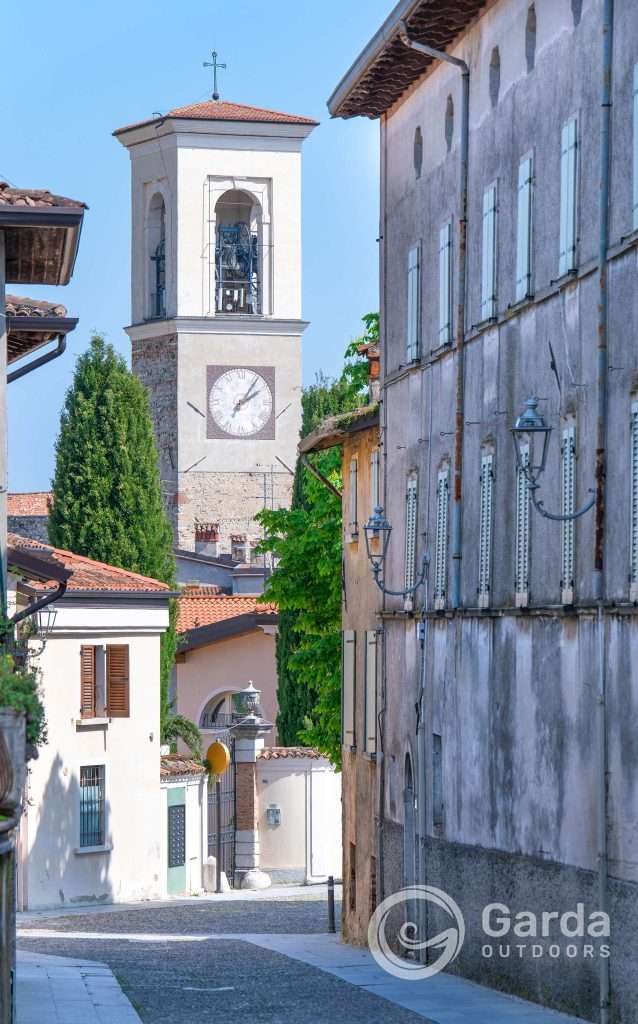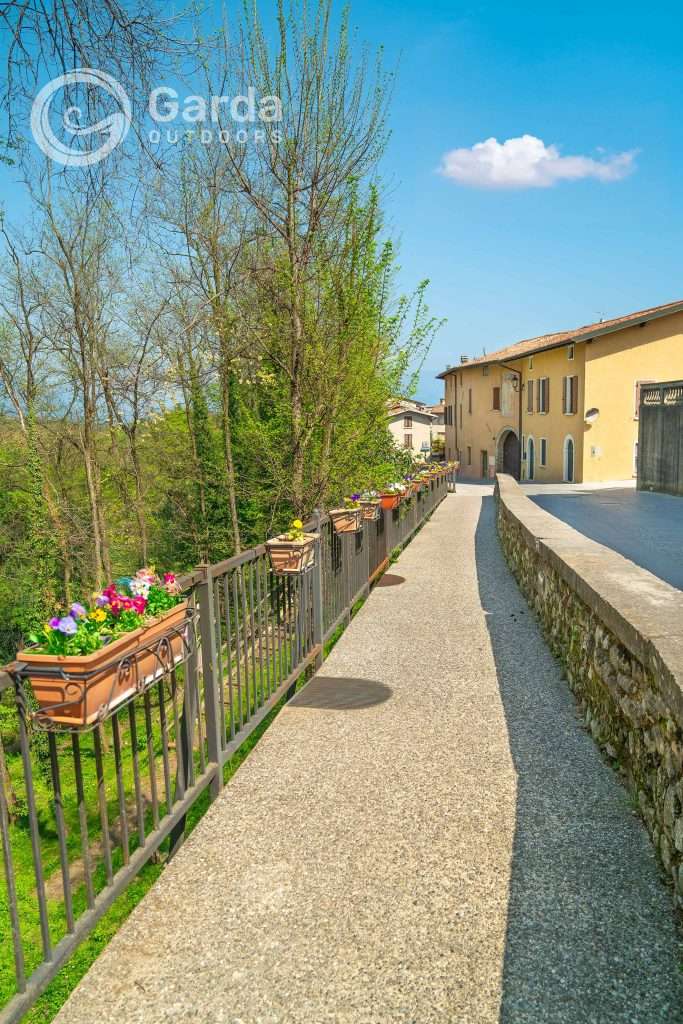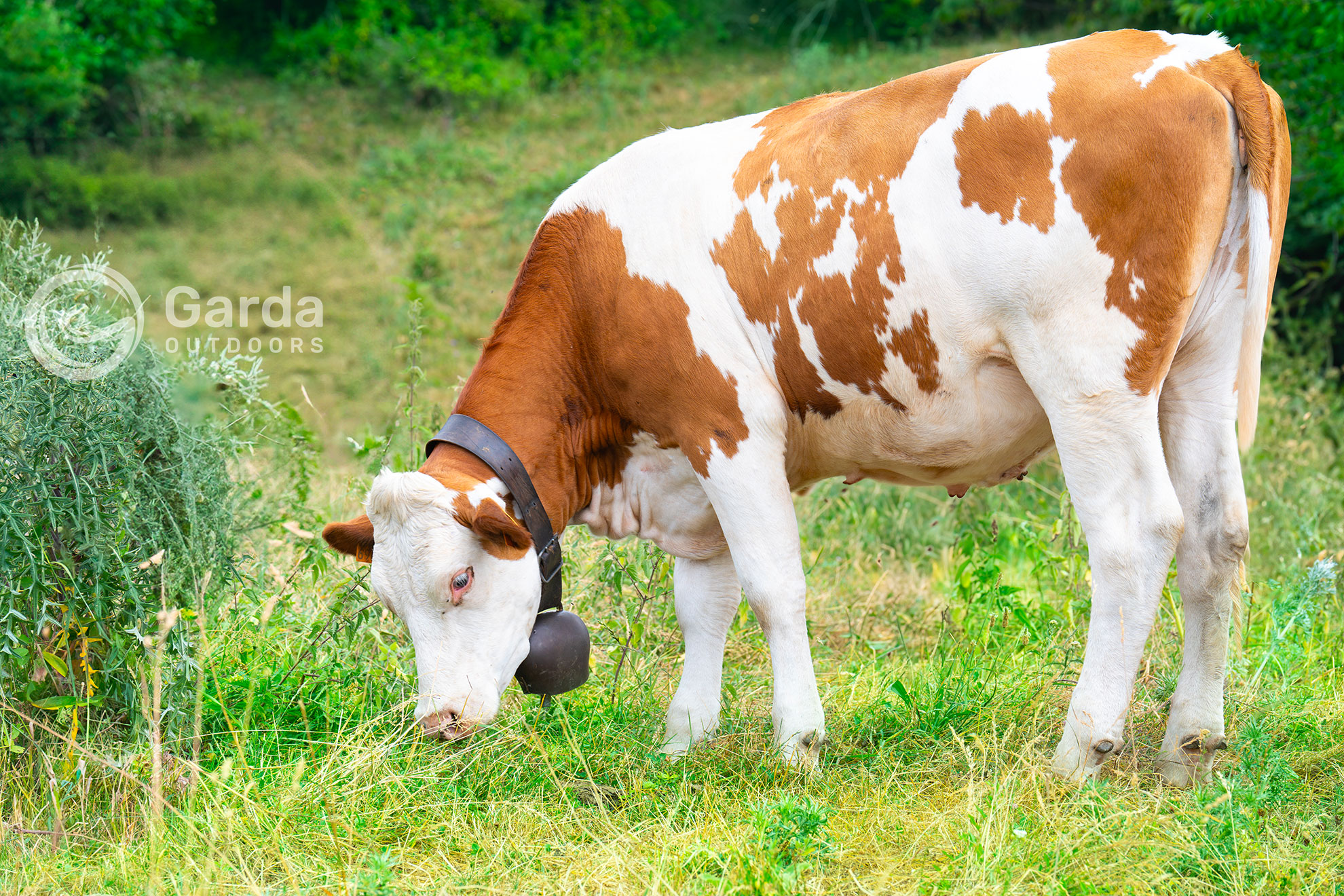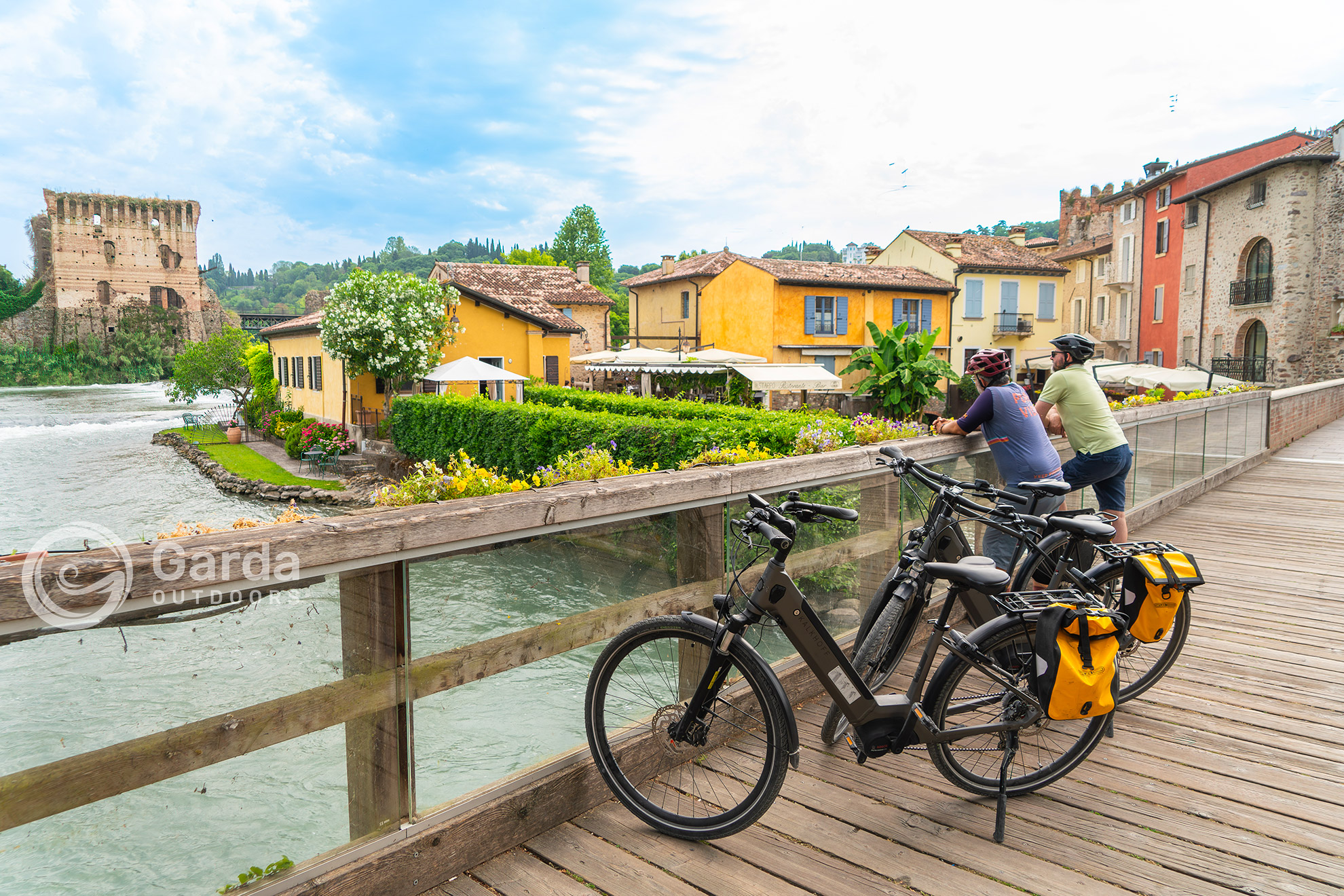Perched among the rolling hills of Valtenesi, we find Polpenazze del Garda, a splendid Brescia village that dominates the panorama. Here we are in the heart of vineyards and olive groves, which embroider valleys and slopes, from which Valtenesi DOC rosé wines and DOP extra virgin olive oil are obtained.
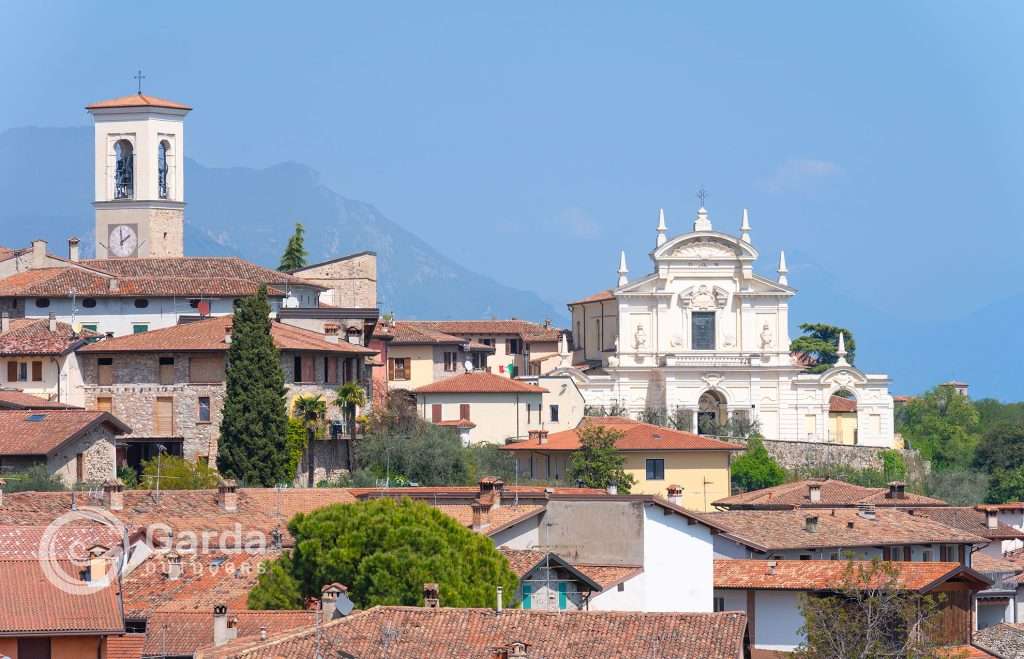
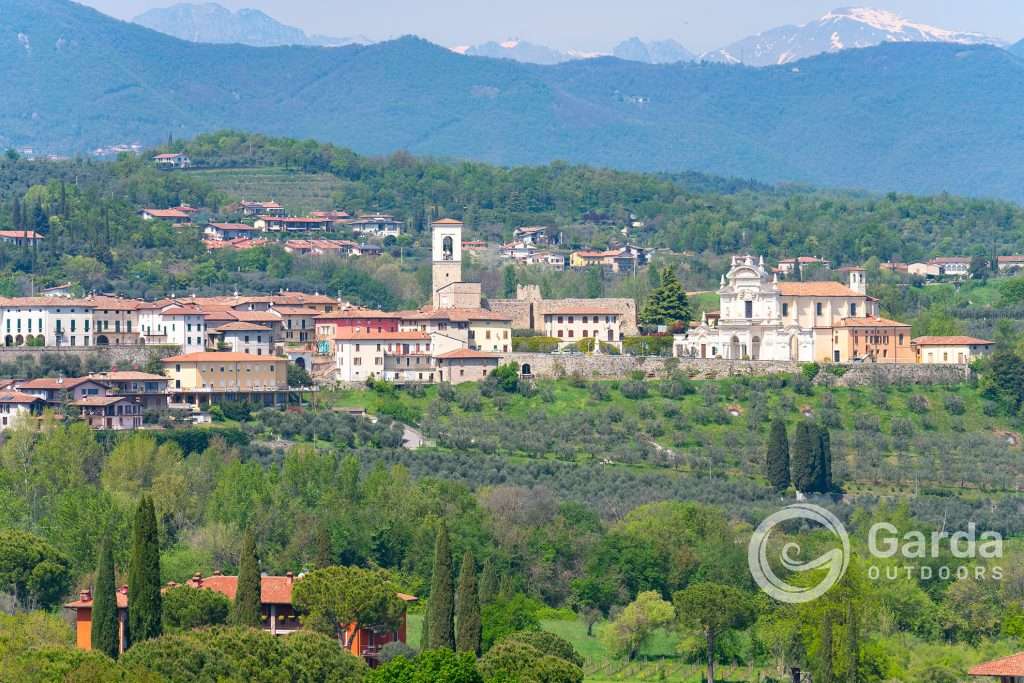
Historical notes
The origins of Polpenazze date back to the Bronze Age. In fact, some pile-dwelling remains have been found in the sediment of Lake Lucone which, located between the hills of Cassaga, Brassina and San Pietro, was drained between the 15th and 18th centuries.
In these places, the Celts, the Etruscans, and finally the Romans followed one another, as evidenced by the small tower of Bottenago and the church of San Pietro in Lucone, where fragments of a sacred building from the barbarian era were found in the 1960s.
The castle, however, was built in the 10th century, as a defense against Hungarian raids.
Among the illustrious people of Polpenazze we remember Luigi Filippini (born in 1744), a doctor who opened a wax factory in the town, then moved to Salò, and was the inventor of an ointment against cancer.
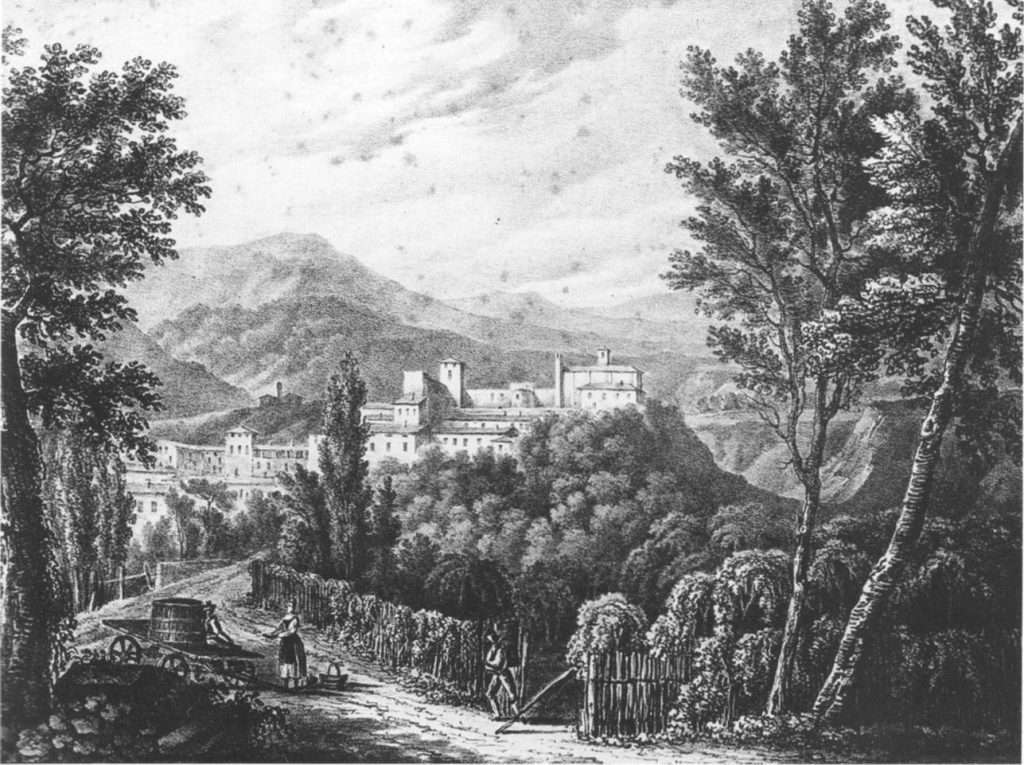
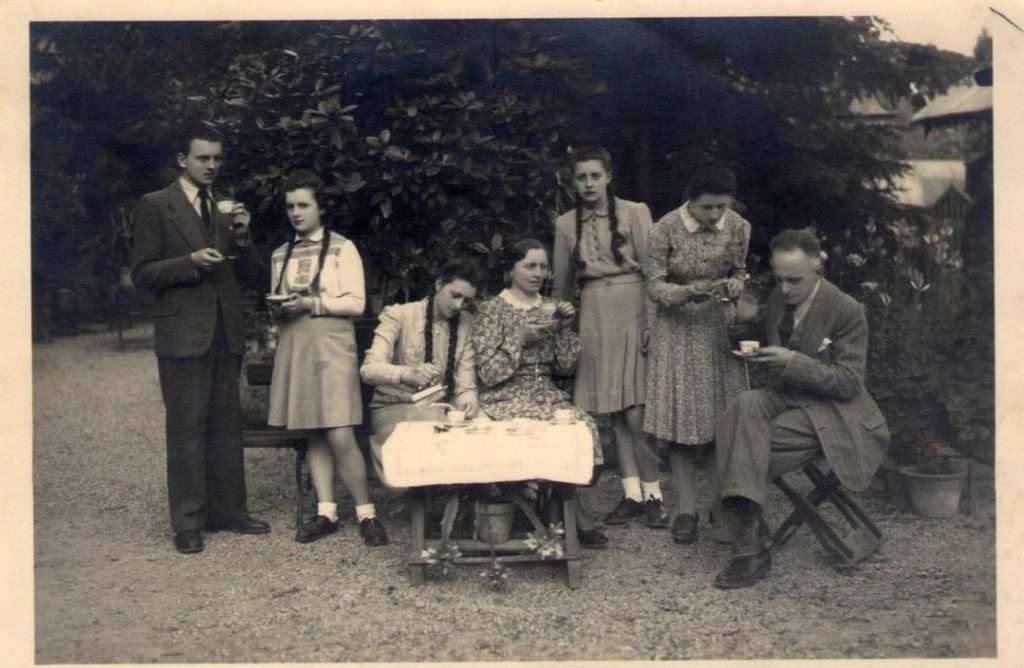
What to see in Polpenazze
The Castle with the historic center
The walls of the ancient Castle surround the main residential area of the town. It was built for defensive purposes, as a shelter from the Hungarian invasions of the 10th century, during the early medieval period, and as often happened it was characterized by numerous renovations; In fact, it was destroyed and subsequently rebuilt several times. The masonry of the ancient complex, characterized by a rather irregular plan, was created through the use of pebbles of various sizes interspersed with local stones, everything was then arranged according to a precise orientation in order to obtain a regular wall mesh. However, currently only a section of the wall to the west is visible, interrupted by a small tower. It is still clear what the ancient entrance must have been, moved further to the left compared to today’s one and most likely defended by a tower of which traces remain which also suggest the presence of a drawbridge given the loopholes present on it . At present the castle houses the library, the municipal offices and the parish church of the Nativity of the Madonna.
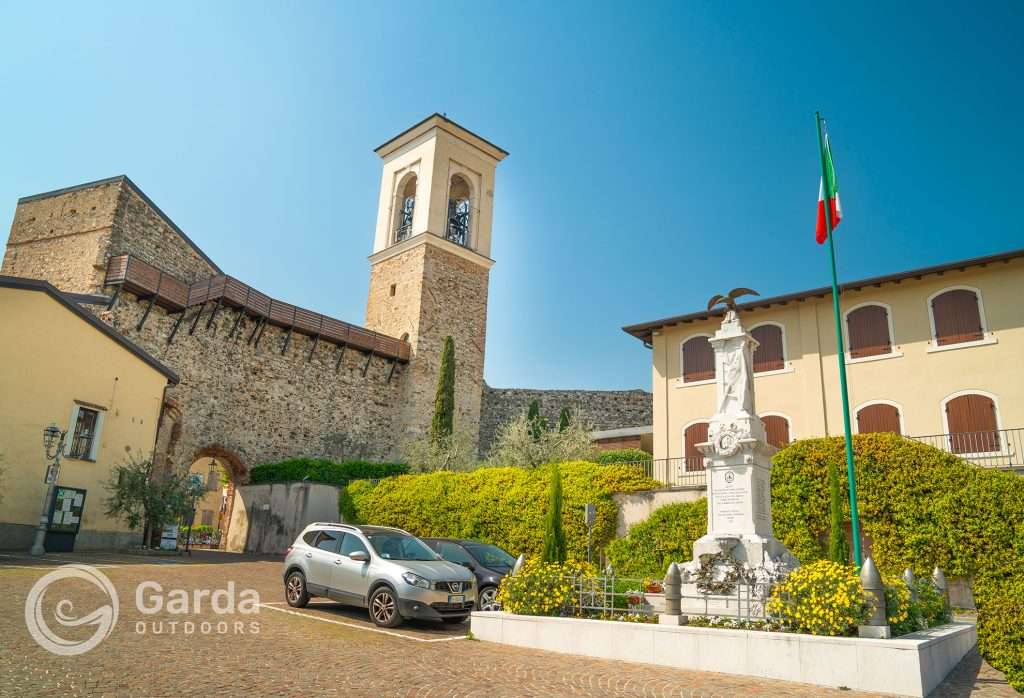
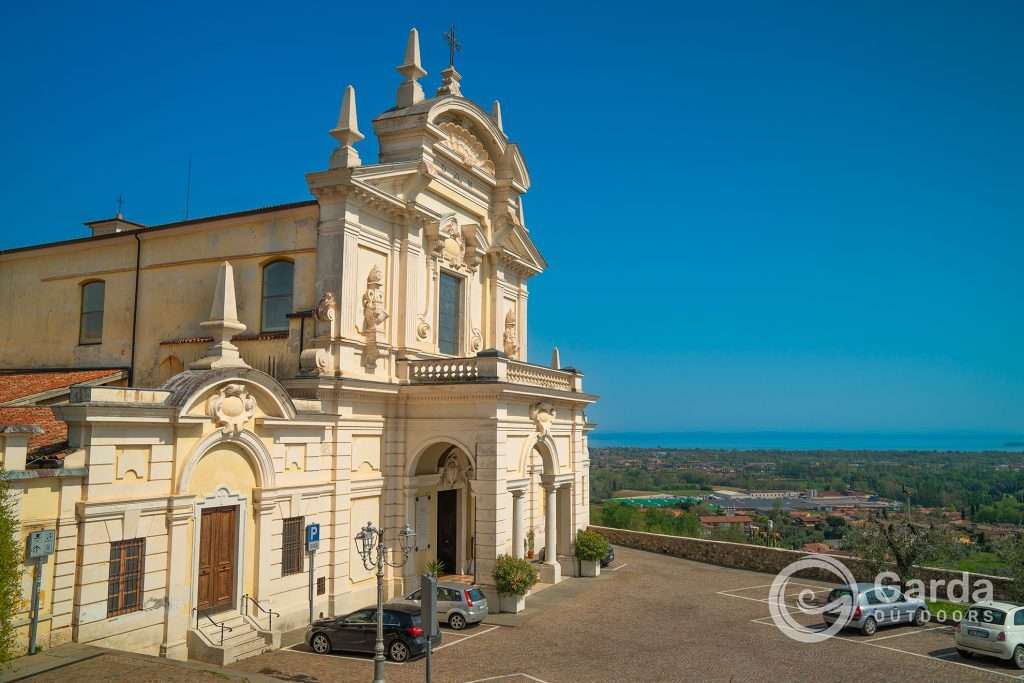
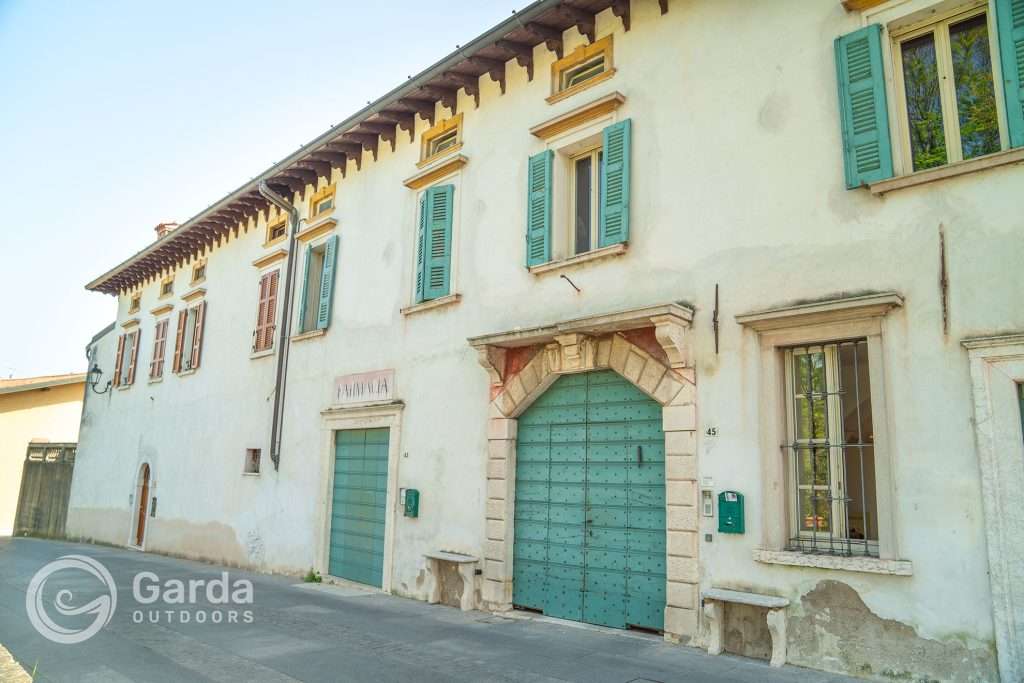
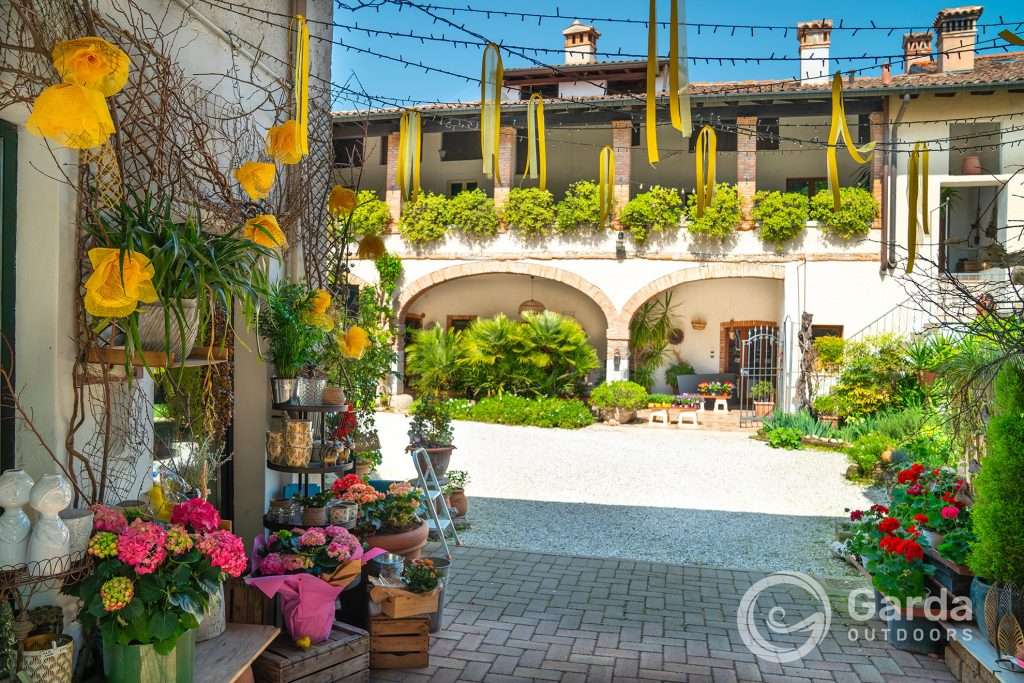
The Church of the Nativity of Our Lady
The Church of Santa Maria dates back to 1585, a true triumph of baroque art. From the top of its balcony you can enjoy a spectacular view of olive groves, vineyards, perched villages and the blue of the lake. The large churchyard and the square it overlooks are immersed in a historical context worthy of a painting, with the castle tower framing everything.
The church inside has a single nave which ends with the polygon-shaped presbytery with finely decorated bays. The apse and the ceiling are frescoed with paintings by Andrea Bertanza, Pietro Marone and Graziano Cossali. Inside you can admire the ancient organ, the five altars, and the altarpiece of the Nativity of the Virgin from 1607. The external façade dates back to the early 1900s by the architects Tagliaferri, who very well accentuates its baroque aspects.
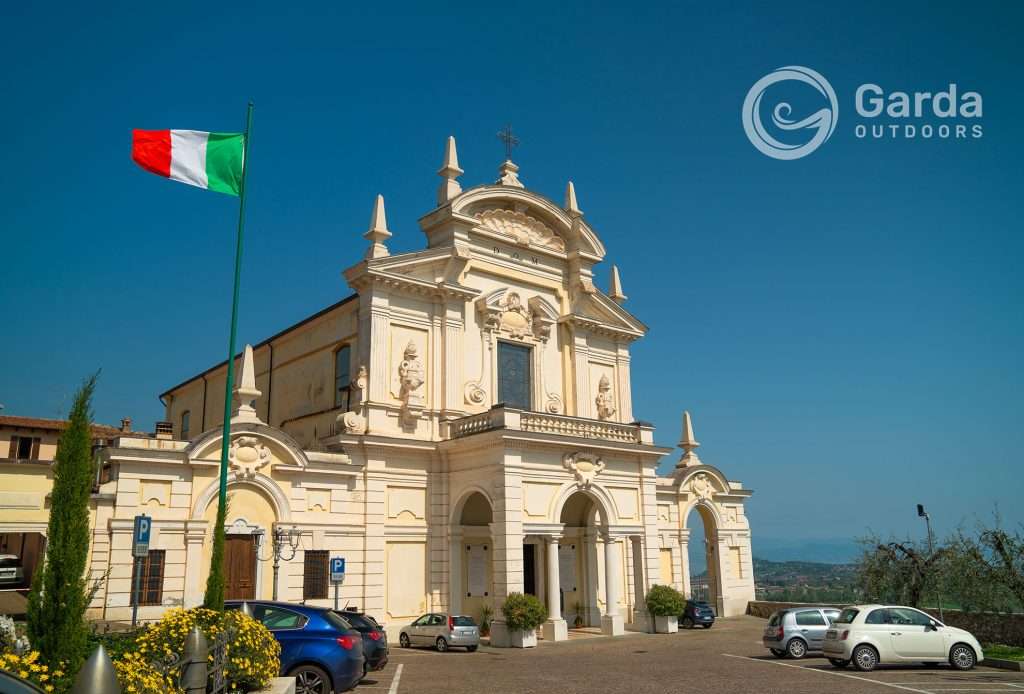
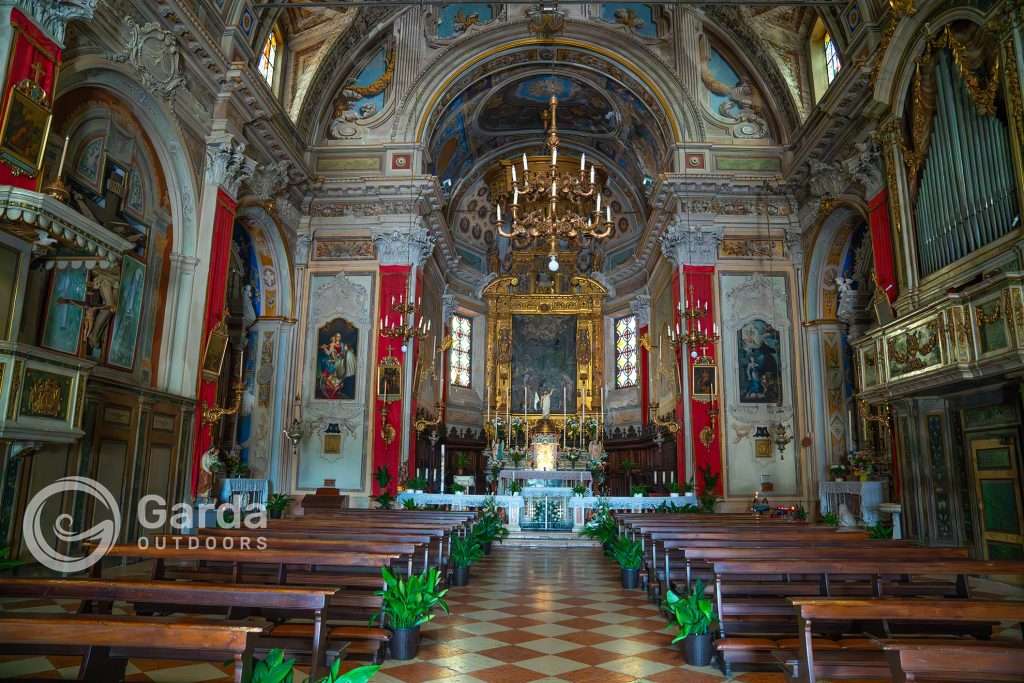
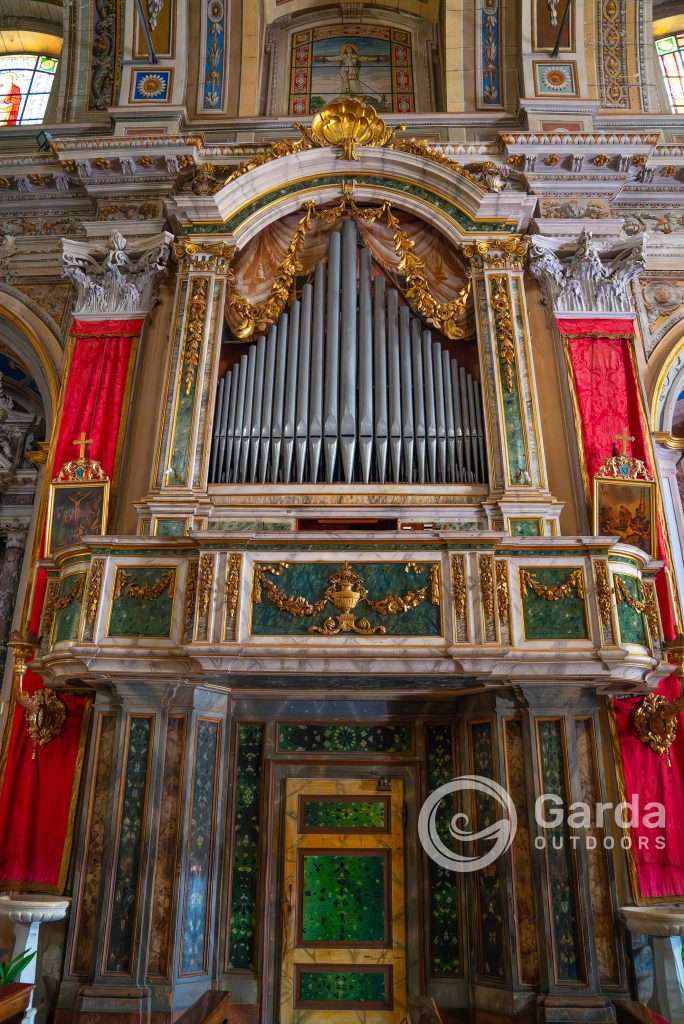
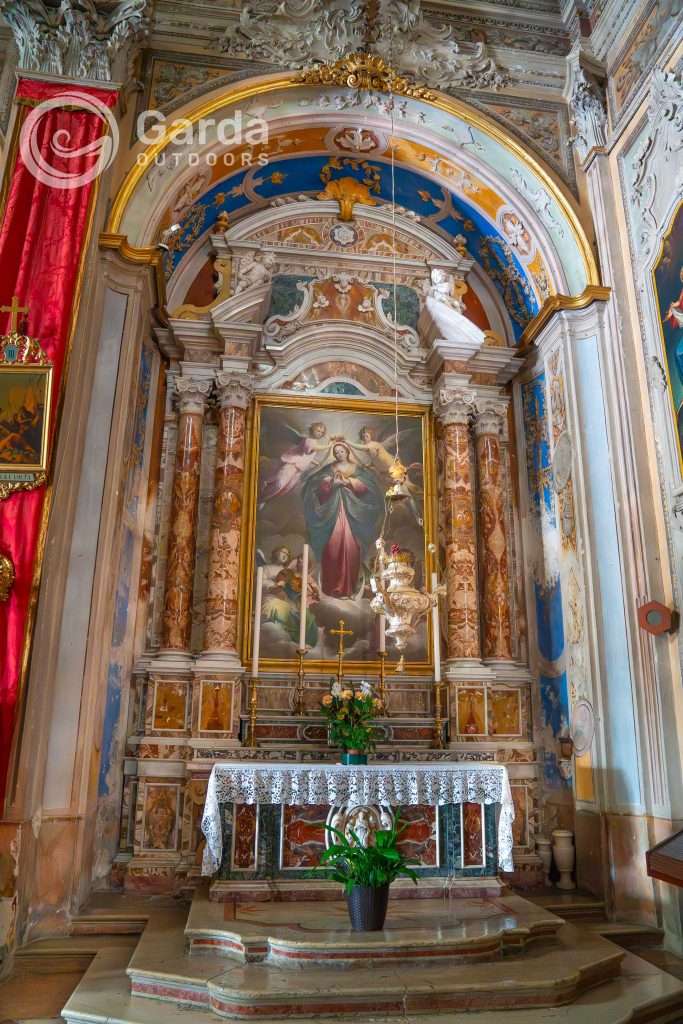
Church of San Pietro in Lucone
The Church of San Pietro in Lucone, characterized by a rustic exterior in local Romanesque style, shows a notable rose window dating back to the 14th century, confirmed by references to frescoes from the 1300s in a report from 1743.
Inside, frescoes from the 14th century Veronese school adorn the apse and the centre, while the side naves and pillars present votive offerings dating back to the second half of the 15th century.
Worthy of note are the wooden organ which, due to the strong counterweights that characterize it, requires two people to play it; and a fresco from 1603, depicting the Conception of the Blessed Virgin and attributed to Pietro Ricchi, known as Lucchese.
Saint Peter, patron of fishermen and reapers, is also the first pope, and the church reflects this dual devotion.
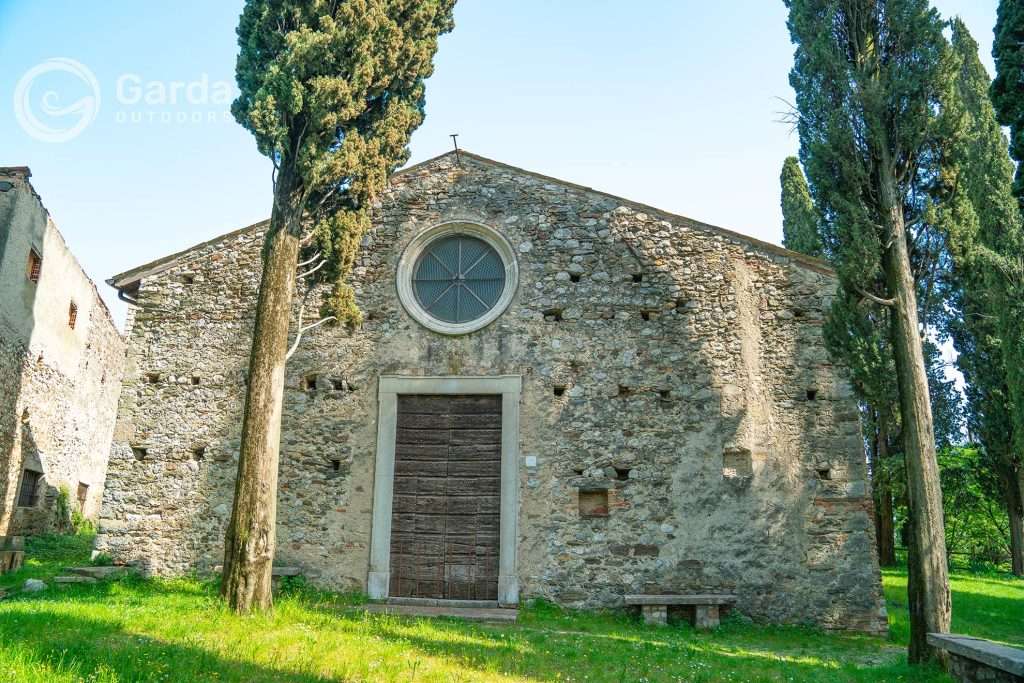
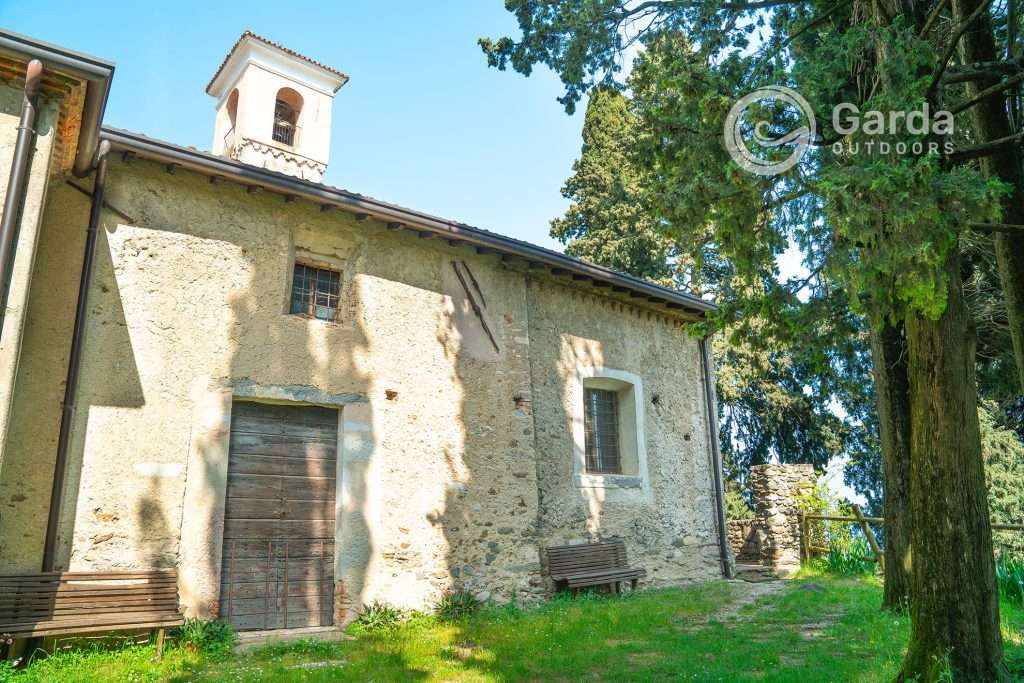
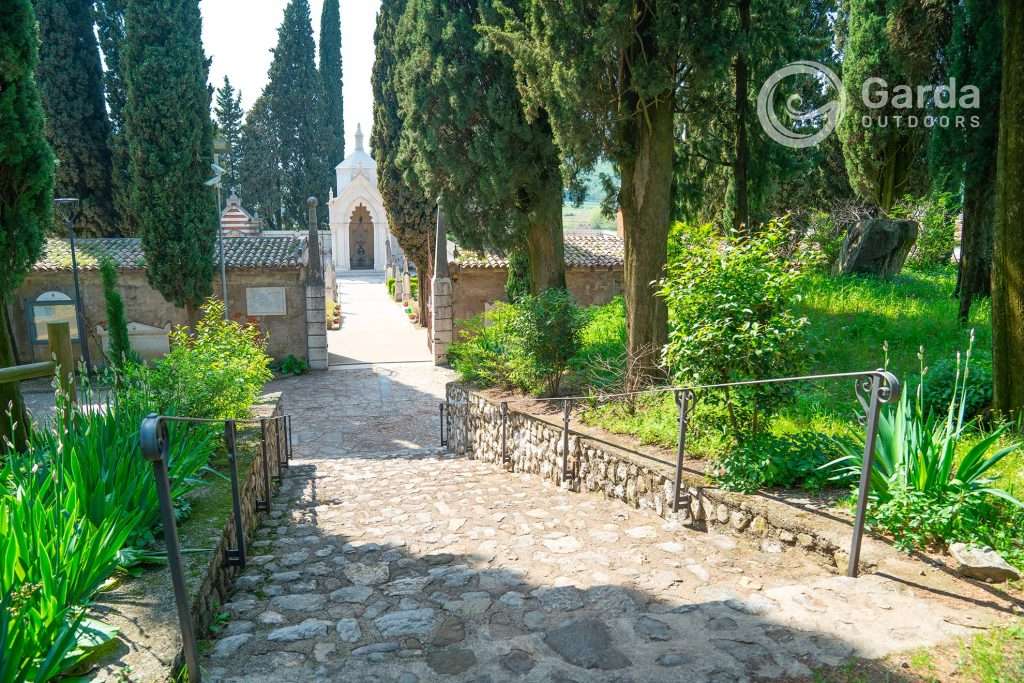
Church of Sant’Antonio
The Church of Sant’Antonio is located in the hamlet of Picedo. The building was built in the fifteenth century in late Romanesque architecture. The façade, the bell tower and the apse, however, underwent heavy renovations from the sixteenth century onwards, up to the seventeenth century. The interior, fortunately, maintains its original appearance and most of the primitive decorations.
The church was part of the ancient historical nucleus of Picedo, which revolved around Piazzetta Olivieri. In addition to this building, only another building remains, located next to the church, of considerable importance for the integrity of its original appearance, a typical example of a fifteenth-century rustic building.
The church has a gabled façade decorated with four pilasters and a triangular pediment as a crowning feature. The entrance portal and, above, a large lunette window open onto the central axis. The bell tower, to the right of the facade, is in exposed masonry, with squared blocks of stone and brick.
The interior has a single nave and is still covered by the original roof with terracotta beams and tiles. On the right wall you can see a monochrome fresco from the 16th century depicting Saint Anthony and other votive frescoes from the second half of the 15th century. The main altar instead houses an altarpiece with Saint Anthony between Saint Rocco and Saint Sebastian by an anonymous seventeenth-century painter.
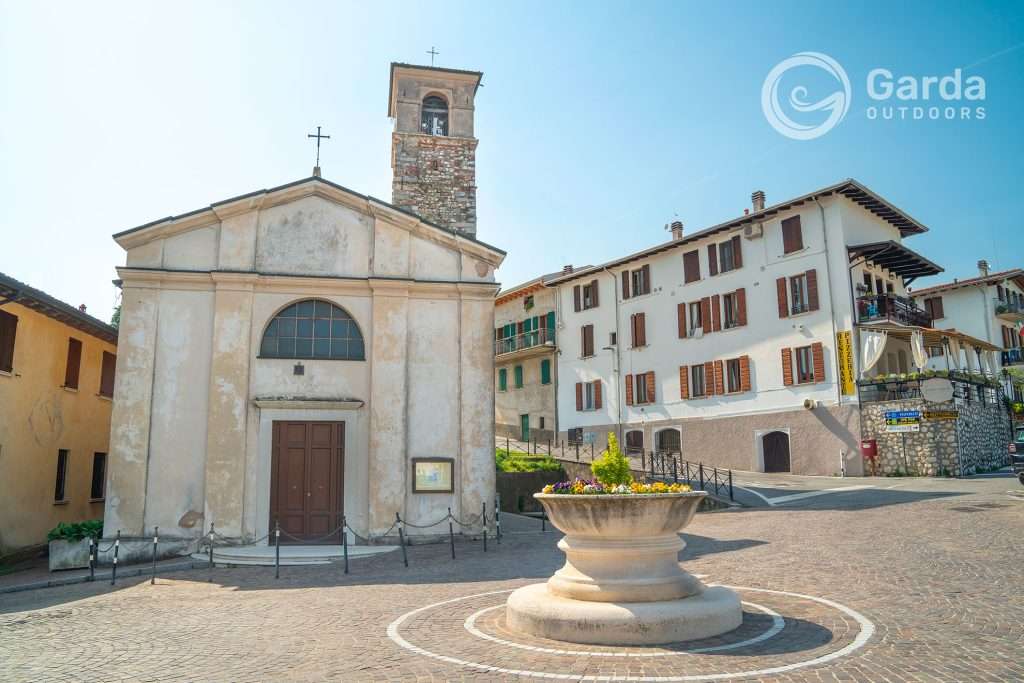
Events in Polpenazze: the Wine Fair (Fiera del Vino)
The Wine Fair saw its first edition in 1947, and is one of the oldest in Italy. It was born with the aim of enhancing the local wine heritage, transforming the historic center of Polpenazze into a place of celebration.
It is held in the central square every last weekend of May, to taste the best wines of the area accompanied by local dishes and delicacies. Music, various entertainment and a final fireworks show also brighten the atmosphere.
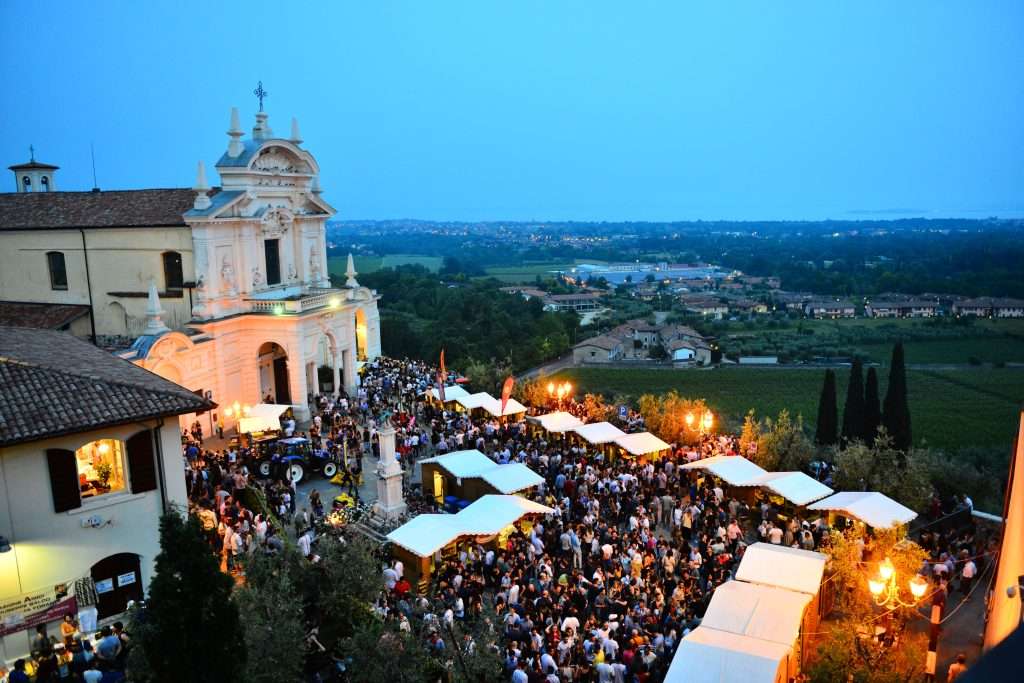
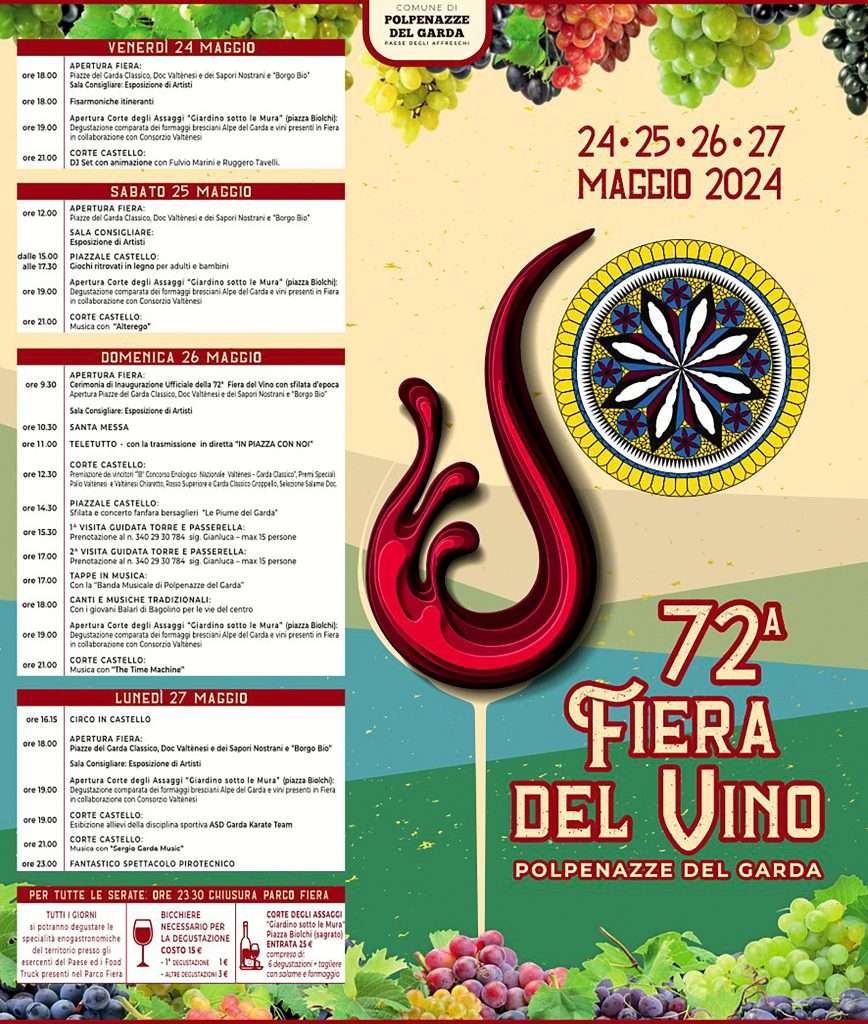
Where to sleep in Valtenesi
We recommend two different and unique places:
BorgoLuna Luxury Holidays House is a small jewel set in the village of San Felice del Benaco. 3 exclusive suites, born from the union between history and innovation, between sustainability of materials and respect for tradition.
For further information click here.
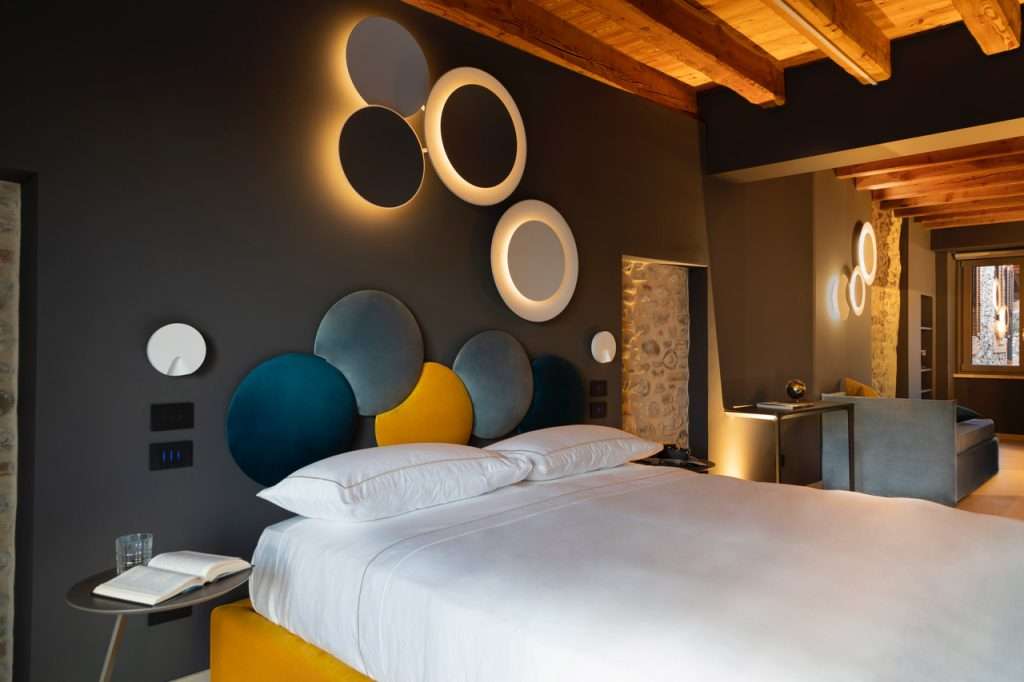
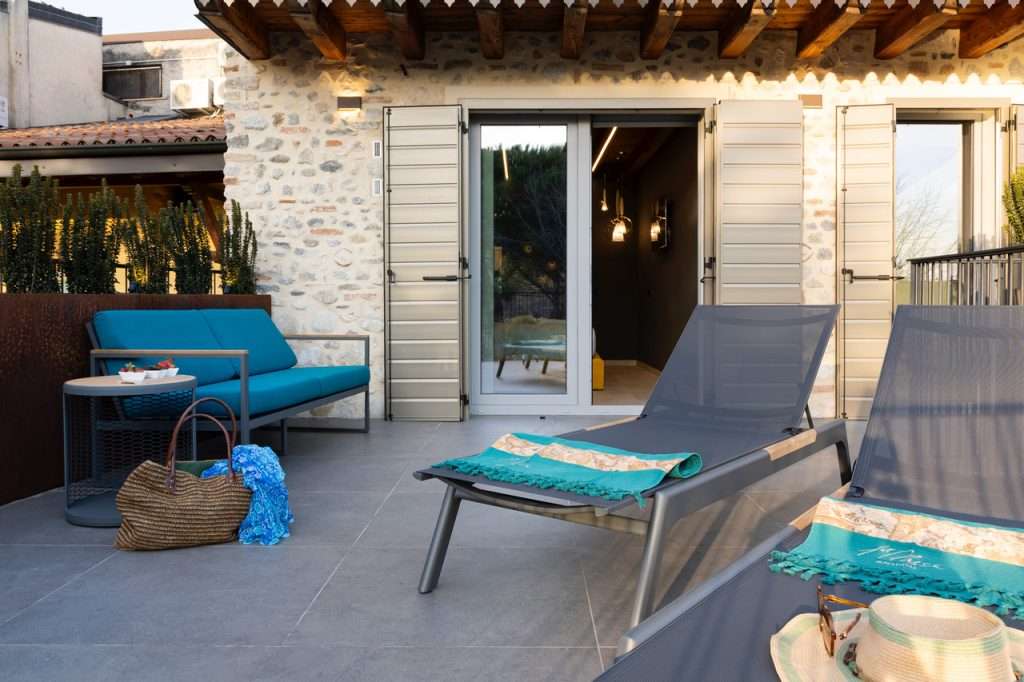
The Hotel San Filis, with all its charm of an ancient 17th century residence, is located in the historic heart of San Felice del Benaco. Swimming pool, garden, restaurant and many services available to guests.
For further information click here.
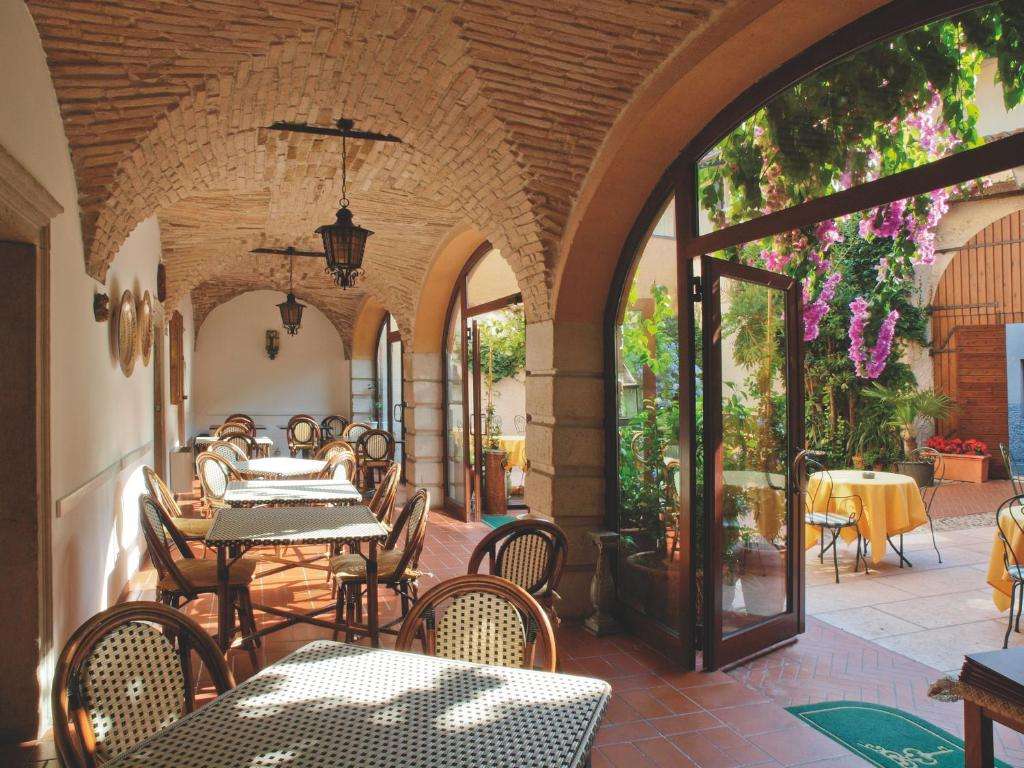
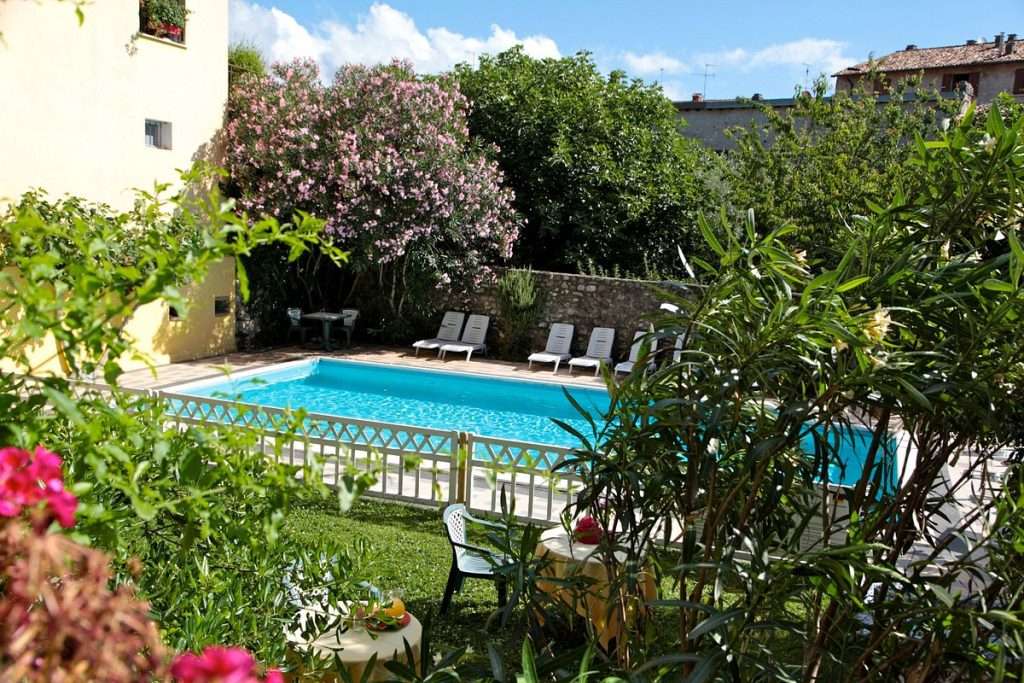
Experiences in Valtenesi
The cultural and natural heritage of Valtenesi offers many opportunities to live unique experiences in the area. Here are some ideas for many beautiful emotions!
To experience the waves of the lake as true protagonists on Wakesurf, E-foil, Foil, Jetsurf you cannot miss an adventure with the Your Wave team.
To visit a unique and exciting location surrounded by vineyards and book a food and wine tasting we recommend the Conti Thun Winery.
Do you love adventure? Do you like to get excited? Try parasailing and discover Lake Garda by flying thanks to the Garda Parasailing team.
Have you ever experienced the silence of an electric boat? At Nautica Elettrica San Felice you will find it for hire.
Do you like to photograph? Contact professional photographer Stefano Maraggi to guide you in your search for the perfect shot.
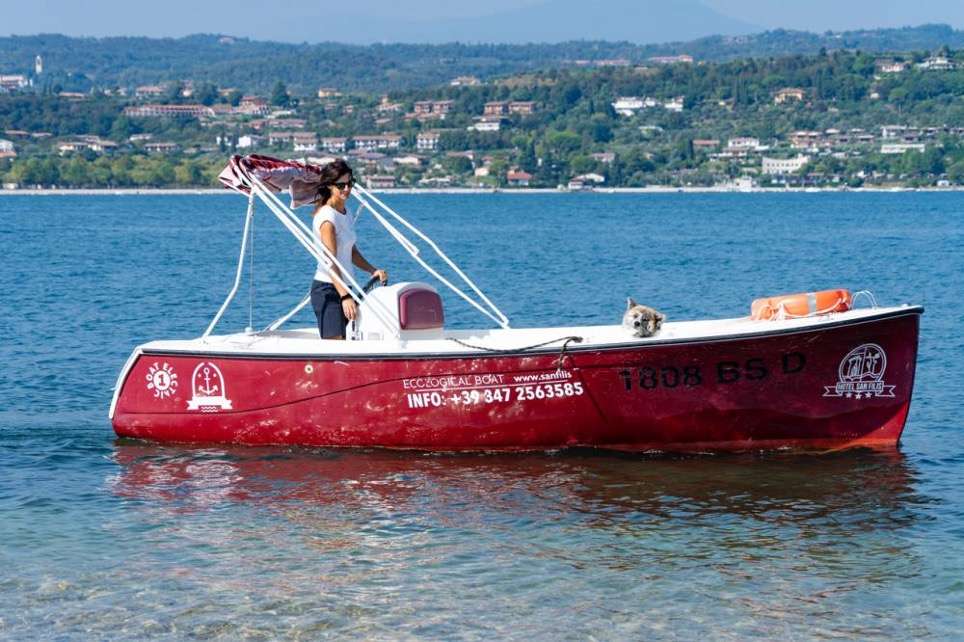
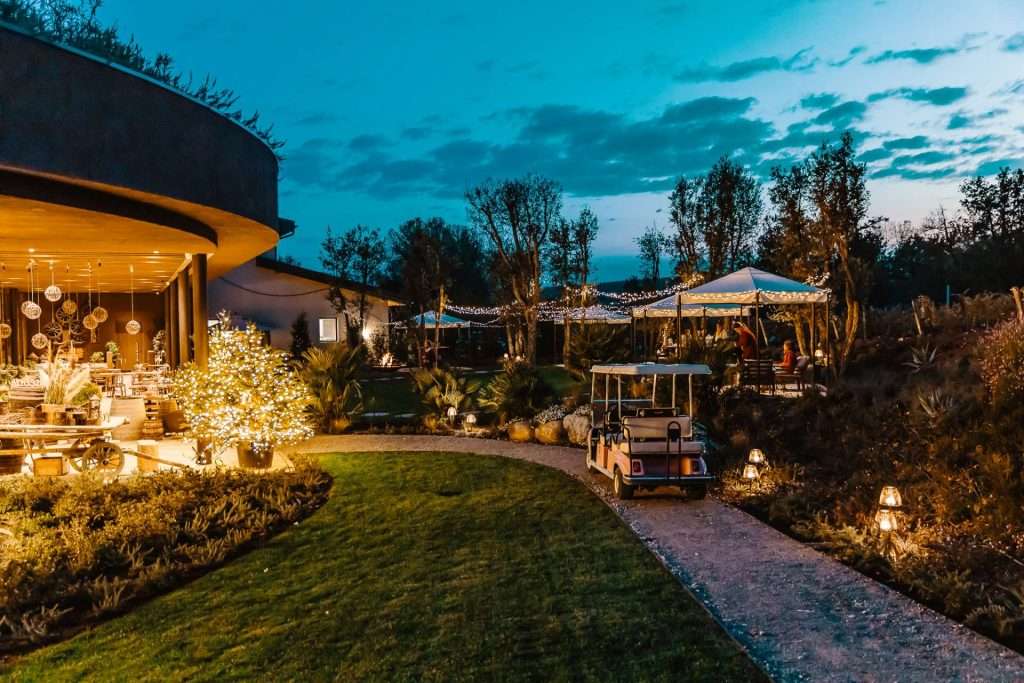

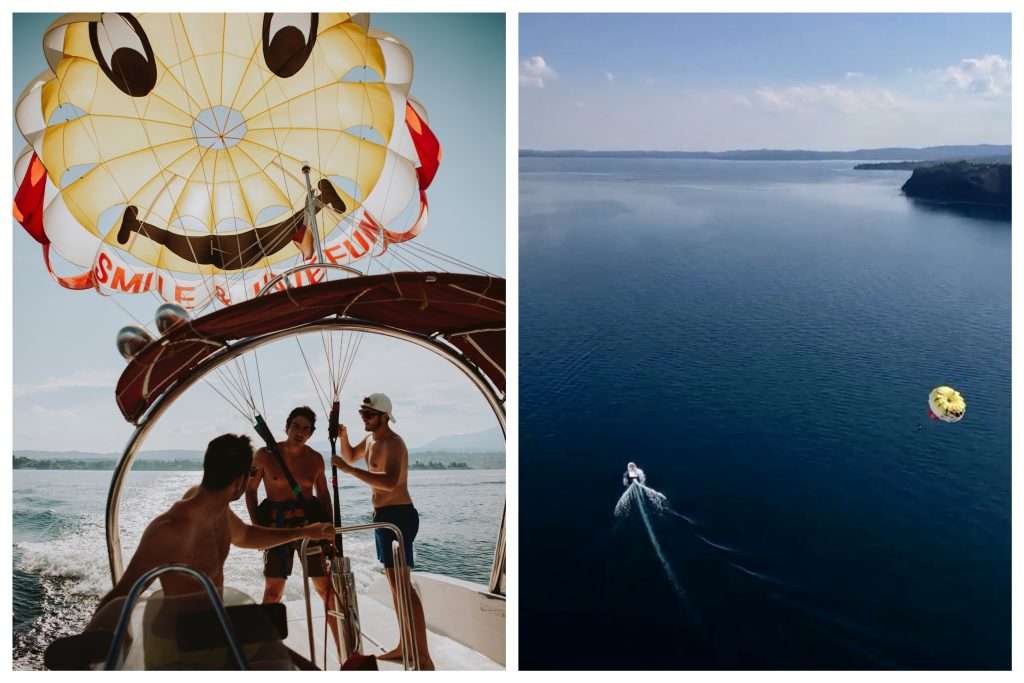
Here time seems to slow down its frenetic pace, allowing visitors to immerse themselves without reservation in the magical quiet of the village. Nowadays, places that retain their beauty unaltered, without suffering from the crowds, are rare pearls.
See you next time dear Outdoors!
Silvia Turazza
